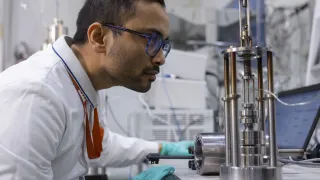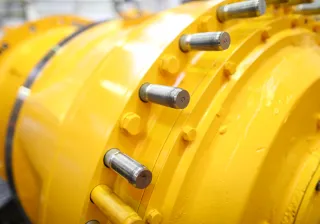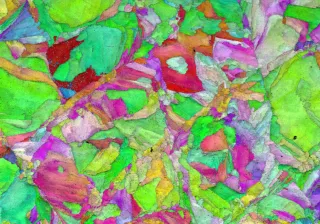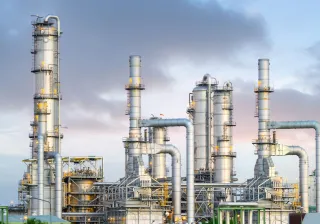How to ensure safety and avoid costly material failures in hydrogen based industrial processes? Utilizing hydrogen requires a deep understanding of materials and their performance. In this second part of webinar series we will continue discussing the hydrogen related material challenges in both transforming existing processes as well as designing completely new components and processes for hydrogen environment.
The webinar held on November 23rd at 14:00–14:45 EEST consists of VTT scientists' insights about hydrogen related material challenges and how VTT ProperScan can help you make right choices and avoid material failures resulting in costly down-time.
Existing and new industrial processes can be transformed to operate with hydrogen but safety aspect needs to be considered in a new way. Hydrogen gas is a highly flammable material and using it as a feed stock or as an energy vector is a challenge that needs to be tackled carefully.
In addition to safety, it is crucial to consider how changes in processes may affect the durability, reliability and maintainability of infrastructure, machinery, and equipment. All of this requires a profound understanding of materials and their performance.
Webinar themes
This webinar is useful for all companies who
- are planning steps to transform existing operations towards hydrogen economy
- design components for new hydrogen based industrial solutions
- need to rethink maintenance plan to accommodate for new unknown factors
- want to avoid costly surprises.
We believe that you will get valuable information from this webinar, especially if you work in the process or energy sector.
This webinar is aimed at people who are responsible for business, products, operations and/or innovations.
Webinar programme
- Material challenges related to the future hydrogen and P2X processes – Thomas Ohligschläger, Senior Scientist
- Case 1: Process changes and operation – Rami Pohja , Senior Scientist
- Case 2: New innovative P2X process – VTT eReactor – Timo Kinos, Senior Scientist
- Q&A
Agenda with VTT experts
Material challenges related to the future hydrogen and P2X processes
Thomas Ohligschläger
Senior Scientist, Materials in extreme environments
During his career, Dr. rer. nat. Thomas Ohligschläger worked as a researcher on corrosion and surface engineering for stainless steel producer Outokumpu where he was able to broaden his knowledge on metallurgy. He joined VTT in 2020, where his studies focus now on wet corrosion of metals in various environments. He applies his expertise also to failure analysis and material selection, often but not only, for the process, energy and manufacturing industry.

Case 1: Process changes and operation
Rami Pohja
Senior Scientist, Materials in extreme environments
During his career M.Sc. (Tech) Rami Pohja Has worked in the field of materials science and technology development in Finnish industry, Aalto University and VTT.
Rami joined VTT in 2011 and his current focus is in high temperature degradation mechanisms of metallic materials and life estimation. He is currently finishing his PhD on the evolution creep cavitation in metallic materials.

Case 2: New innovative P2X process – VTT eReactor
Timo Kinos
Senior Scientist, Sustainable material design
During his career Lic.Sc (Tech) Timo Kinos has worked in the field of materials science and technology development, first at Technical University of Tampere and later at Nokia and Microsoft Corp.
Timo joined VTT in 2016 and works currently e.g. with material development for resistively heated chemical reactors, AM processed soft magnetic materials and materials for EMI shielding.

Webinar moderator:
Pekka Pohjanne
Lead, Materials for new energy technologies
He has over 30 years of experience related to materials development, performance, and life assessment of components for process industries, power production and offshore applications. During his career, he has been principal investigator and project manager in a many national and EU projects and has authored and co-authored more than 100 journal articles, conference papers and reports. He is also active in European networks like Energy Materials Industrial Research Initiative (EMIRI), where he is a VTT representative.









